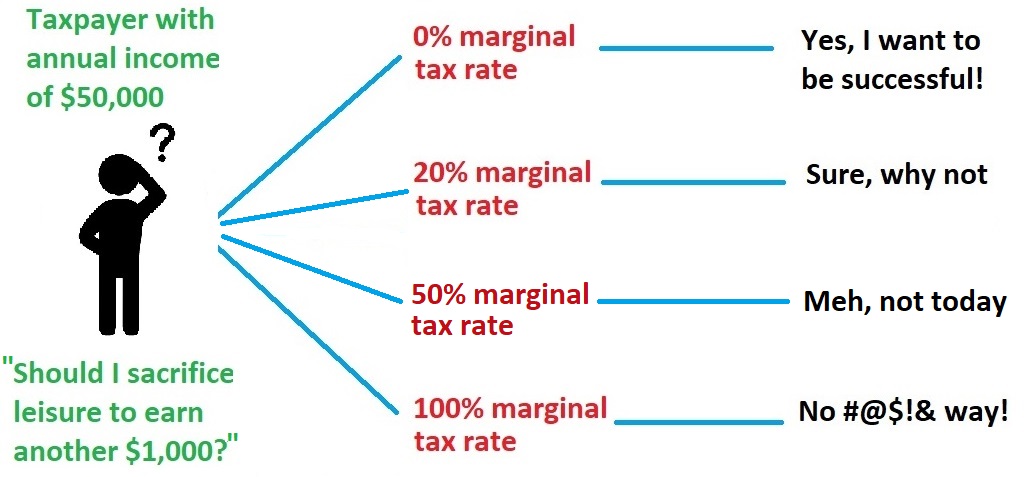Ask anyone in Australia’s competition law community what transformed the economy, and you will hear a familiar story. Australia was once a cartelised, complacent place where businesses divided up markets and consumers paid the price. Then came the Trade Practices Act in 1974, and competition law forced firms to compete. This is not a fringe […]
Dismantling the competition myth
Dismantling the competition myth
06 Mar 2026 Leave a comment
in Austrian economics, comparative institutional analysis, economic history, economics of regulation, entrepreneurship, history of economic thought, industrial organisation, law and economics, organisational economics, politics - Australia, technological progress, theory of the firm Tags: competition law, creative destruction
The youth gender gap is because young women have moved left
06 Mar 2026 Leave a comment
in politics - New Zealand, politics - USA, Public Choice Tags: regressive left, voter demographics
The tweet above includes this graph: The original tweet has lots of reasoning as to why this is. TLDR is social media. The post The youth gender gap is because young women have moved left first appeared on Kiwiblog.
The youth gender gap is because young women have moved left
Germany’s “Energy Transition” Hits the Ice: LNG Crisis Exposes the Costs of Shunning Nuclear and Baseload Power
05 Mar 2026 Leave a comment
in economics of climate change, economics of regulation, energy economics, environmental economics, environmentalism, global warming Tags: wind power, solar power, Germany, celebrity technologies
Baseload power sources — whether nuclear or coal — were dismissed prematurely with pie-in-the-sky magical-thinking that a renewables-centric system could replace them quickly. But the reality of an industrialized society is that demand does not pause when the wind stops blowing or when Baltic ice slows a tanker. In that context, abandoning dispatchable power before…
Germany’s “Energy Transition” Hits the Ice: LNG Crisis Exposes the Costs of Shunning Nuclear and Baseload Power
Why Most Australian Writers’ Festivals Are Pro-Palestinian
05 Mar 2026 Leave a comment
in economics of education, economics of media and culture, liberalism, Marxist economics, politics - Australia
Australian writers’ festivals are frequently accused of being “pro-Palestinian” or anti-Israeli. The charge is usually made in frustration: panels on Gaza and Palestinian literature are common; strongly pro-Israel voices are rare; and anyone who questions the imbalance is quickly told they are confusing “balance” with “morality”. Yet the more interesting question is not whether a […]
Why Most Australian Writers’ Festivals Are Pro-Palestinian
When Rubber Was the Critical Imported Good
05 Mar 2026 Leave a comment
in defence economics, economic history, transport economics, war and peace Tags: World War II
At the start of World War II, the US economy relied almost exclusively on imported rubber as the key material for making, among other things, tires for cars and airplanes. The dependency was well-known, but in April 1942, when Japan cut off the foreign supply, the US was unprepared. Synthetic rubber ended up being part…
When Rubber Was the Critical Imported Good
The Evaluative Emptiness of the Economic Approach to Law
04 Mar 2026 Leave a comment
in applied price theory, applied welfare economics, comparative institutional analysis, history of economic thought, law and economics, Public Choice

Law & economics traces its intellectual roots to the University of Chicago. That lineage still shapes how the field is understood. Chicago price theory—especially Gary Becker’s (1976) systematic application of maximization, equilibrium, and stable preferences across social life, and George Stigler’s (1992, p. 459) suggestion that “every durable social institution or practice is efficient, or…
The Evaluative Emptiness of the Economic Approach to Law
Jack Smith’s Secret Orders Targeting Patel and Wiles Should Alarm Us All
04 Mar 2026 Leave a comment
in economics of crime, law and economics, politics - USA Tags: 2020 presidential election, 2024 presidential election

Below is my column on Fox.com on the new disclosures of secret orders targeting now FBI Director Kash Patel and…
Jack Smith’s Secret Orders Targeting Patel and Wiles Should Alarm Us All
More Bark Than Bite: Kaine’s War Powers Resolution is an “Imminent” Failure
04 Mar 2026 Leave a comment
in defence economics, International law, laws of war, politics - USA, war and peace Tags: regressive left

We now have a glimpse of the War Powers Resolution promised by Sen. Tim Kaine (D., Va.), which is reportedly…
More Bark Than Bite: Kaine’s War Powers Resolution is an “Imminent” Failure
The Clintons and the Politics of Scandal
03 Mar 2026 Leave a comment
in economics of crime, law and economics, politics - USA

Below is my column in the Hill on the deposition of former President Bill Clinton and former Secretary of State…
The Clintons and the Politics of Scandal
Iranian women: 1970 vs. 2020
03 Mar 2026 Leave a comment
in defence economics, discrimination, economic history, gender, labour economics, liberalism, Marxist economics Tags: Age of Enlightenment, Iran, sex discrimination

I put something like this up years ago, but it’s a good way to see, with just a few clicks, what happened to Iran after the “Revolution”. Let’s taken women’s dress, a touchstone of misogyny and theocratic oppression. Before the Islamic Revolution of 1979, it was a pretty free country in that respect, and everyone…
Iranian women: 1970 vs. 2020
Sports and Supply-Side Economics
03 Mar 2026 Leave a comment
in labour economics, labour supply, sports economics Tags: taxation and labour supply

One of the key insights of good tax policy is that people respond to incentives. If tax rates are punitive, people will do what they can to protect themselves from predatory government. Especially if they have any ability to control the timing, level, and composition of their income. Star athletes are definitely in this group. They avoid […]
Sports and Supply-Side Economics
Travel advice for vapers
03 Mar 2026 Leave a comment
in economics of regulation, health economics, international economics Tags: nanny state
The Telegraph has written a guide for vapers travelling to parts of the world that are even more hostile to e-cigarettes. I am quoted in it. Christopher Snowdon, head of lifestyle economics at the Institute of Economic Affairs and editor of the Nanny State Index, which ranks countries by how much they interfere with people’s lifestyle…
Travel advice for vapers
One view of Iranian strategy
02 Mar 2026 Leave a comment
in defence economics, laws of war, politics - USA, war and peace
Some observations and comments on Trump and Israel’s war on Iran: 1. Tehran is not looking for a ceasefire and has rejected outreach from Trump. The reason is that they believe they committed a mistake by agreeing to the ceasefire in June – it only enabled the US and Israel to restock and remobilize to…
One view of Iranian strategy
Will Denmark and/or the Netherlands Copy Norway’s Failed Wealth Tax?
02 Mar 2026 Leave a comment
in fiscal policy, human capital, income redistribution, labour economics, labour supply, macroeconomics, poverty and inequality, Public Choice, public economics Tags: Denmark, taxation and entrepreneurship

Class-warfare tax policy is always a bad idea. Economists generally don’t like class-warfare policies because it is foolish to impose high marginal tax rates on productive behaviors such as investment and entrepreneurship. Politicians should not like class-warfare policies because of the negative impact on jobs and wages for ordinary people as well as the potential negative […]
Will Denmark and/or the Netherlands Copy Norway’s Failed Wealth Tax?
The Macroeconomic Effects of Tariffs
02 Mar 2026 Leave a comment
in applied price theory, econometerics, economic history, history of economic thought, international economics Tags: free trade, tariffs
We study the macroeconomic effects of tariff policy using U.S. historical data from 1840–2024. We construct a narrative series of plausibly exogenous tariff changes – based on major legislative actions, multilateral negotiations, and temporary surcharges – and use it as an instrument to identify a structural tariff shock. Tariff increases are contractionary: imports fall sharply,…
The Macroeconomic Effects of Tariffs
Recent Comments